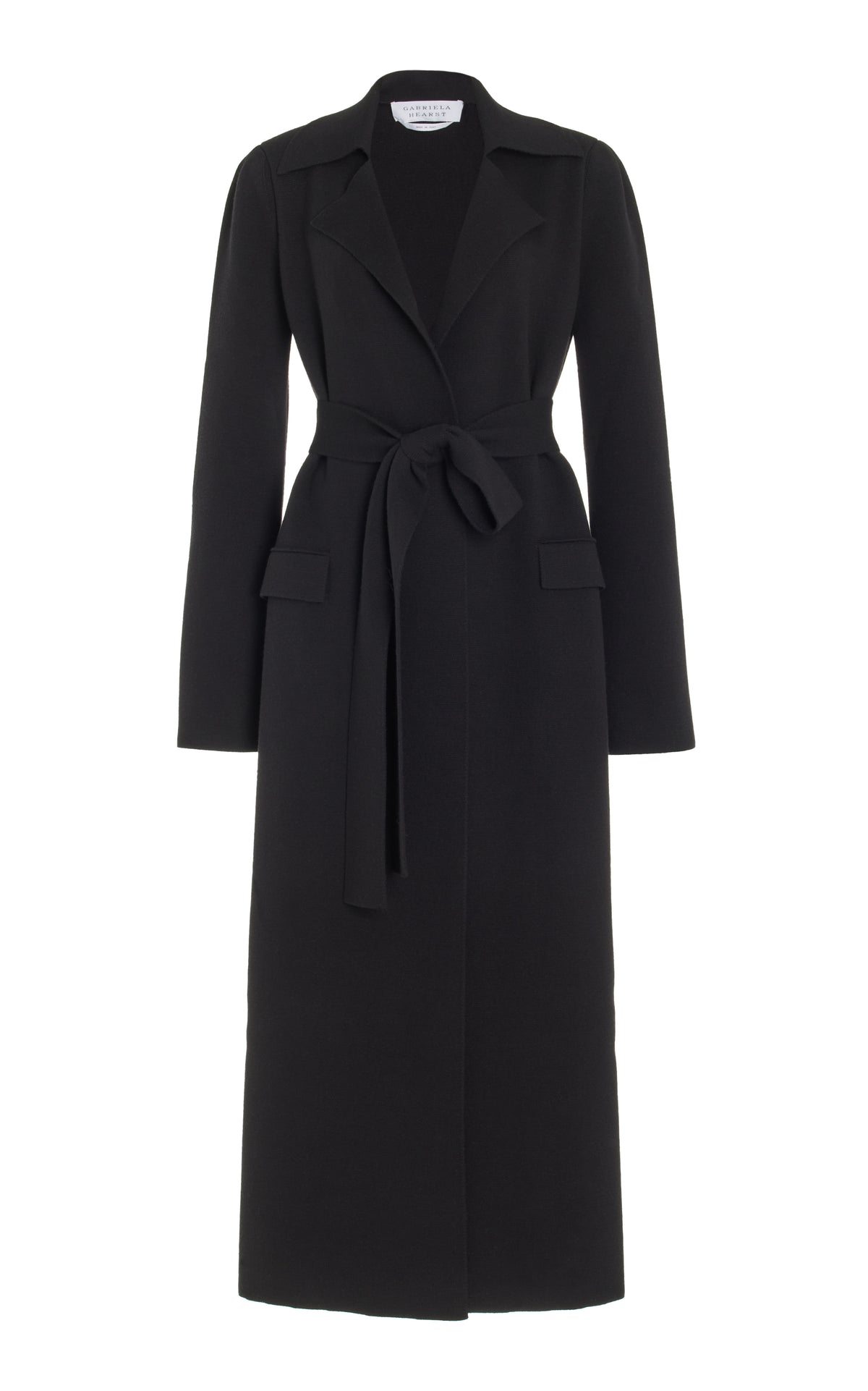
Material Supplier Transparency:
Evan Knit Trench Coat in Black Wool
Knit in a boiled wool that has structure while maintaining softness, the Evan Coat offers a perfect blend of languid ease in movement and a bold silhouette. With a strong shoulder and a form that is based on our classic Gabriela Hearst trench coats, this is a perfect piece to layer with. It pairs beautifully with the Walsh Dress.
Details:
- 100% wool (Australia). Dying/weaving/finishing in Italy.
Merino wool fibers are extremely fine and flexible, making lightweight yarns that are soft on skin. It is lustrous and moves with body, creating comfort and luxurious drape. Like all wool, it is a renewable fiber. It provides warmth while simultaneously transporting moisture away from the body, so skin stays dry. It is naturally antimicrobial, so it resists odors and rarely needs washing. When you do wash Merino, it dries faster than standard wool. The exceptional durability of wool allows for long garment lifespan, and it can biodegrade when disposed into proper soil conditions.
This family-owned mill was founded in 1958. Today, it is powered by renewable energy, purifies its wastewater and recycles more than 90% of its waste. They’ve recently developed a system where they were able to decrease 23% of their carbon emissions. They practice the following guidelines: No Mulesing, Textile and Health Association - Member, Cashmere and Camel Hair Manufacturers Institute - Member, ISO 14001:2015 Environmental Management System, ISO 45001:2018 Occupational Health and Safety Management Systems, RWS certified, Organic Content Standard, 100% Renewable Energy, ZQ- Wool Standard
This garment was produced at a family-owned Italian factory that was founded in 1952. Positioned in the luxury sector, they use high quality materials and purchase from suppliers with high ethical standards. Currently, they’re experimenting with recycled yarns to improve ecological impact. They have solar panels to supply renewable energy, they treat their wastewater, and they recycle approximately 90% of production waste.
